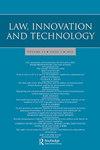New non-validated practice: an enhanced definition of innovative practice for medicine
Q1 Social Sciences
引用次数: 10
Abstract
ABSTRACT A significant part of the literature on innovative practice in medicine relates to seizing opportunities and curbing harms for patients in desperate situations. Unfortunately, the term innovation has multiple meanings and a rich rhetorical flourish that adds confusion and misunderstanding to an already difficult debate. This paper aims to enhance the current definition of innovative practice for medicine. First, we replace the term ‘innovation’ with the more literal ‘new non-validated practice’. To identify this meaning, we analyse the traditional research ethics’ distinction between research, validated practice, and innovation in the Belmont Report. Second, we propose the following explicit definition of new non-validated practice: the first or recent use of diagnostic, therapeutic or preventive interventions that introduce a significant change, with an insufficient level of evidence of safety or efficacy for regular healthcare, and with the main aim to benefit individual patients. This definition is a promising conceptual tool to inform empirical research, ethicists, and the harmonisation of regulation and legislation (e.g. right-to-try laws).新的未经验证的实践:医学创新实践的强化定义
关于医学创新实践的文献的一个重要部分涉及在绝望的情况下抓住机会和遏制对患者的伤害。不幸的是,“创新”一词有多重含义,而且它的华丽辞藻给本已艰难的辩论增加了混乱和误解。本文旨在加强现行医学创新实践的定义。首先,我们将“创新”一词替换为“新的未经验证的实践”。为了确定这一含义,我们分析了传统研究伦理在贝尔蒙特报告中对研究、经过验证的实践和创新的区别。其次,我们建议以下明确定义新的未经验证的做法:第一次或最近使用的诊断,治疗或预防干预措施,引入了重大的变化,对常规保健的安全性或有效性证据水平不足,主要目的是造福个体患者。这一定义是一个很有前途的概念工具,可以为实证研究、伦理学家以及监管和立法的协调(例如,审判权法)提供信息。
本文章由计算机程序翻译,如有差异,请以英文原文为准。
求助全文
约1分钟内获得全文
求助全文
来源期刊

Law, Innovation and Technology
Social Sciences-Law
CiteScore
4.50
自引率
0.00%
发文量
18
期刊介绍:
Stem cell research, cloning, GMOs ... How do regulations affect such emerging technologies? What impact do new technologies have on law? And can we rely on technology itself as a regulatory tool? The meeting of law and technology is rapidly becoming an increasingly significant (and controversial) topic. Law, Innovation and Technology is, however, the only journal to engage fully with it, setting an innovative and distinctive agenda for lawyers, ethicists and policy makers. Spanning ICTs, biotechnologies, nanotechnologies, neurotechnologies, robotics and AI, it offers a unique forum for the highest level of reflection on this essential area.
 求助内容:
求助内容: 应助结果提醒方式:
应助结果提醒方式:


